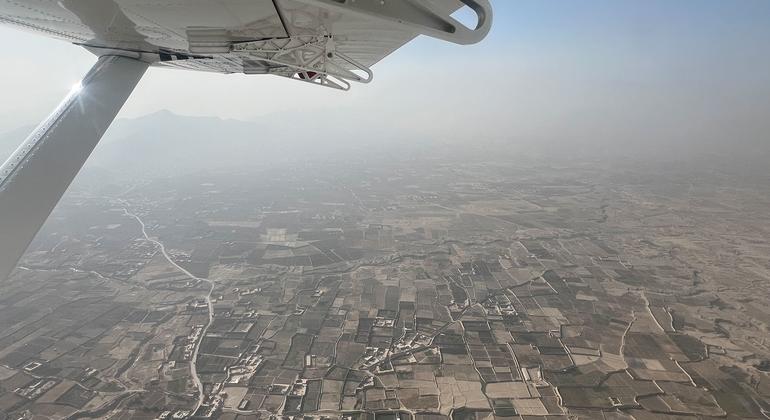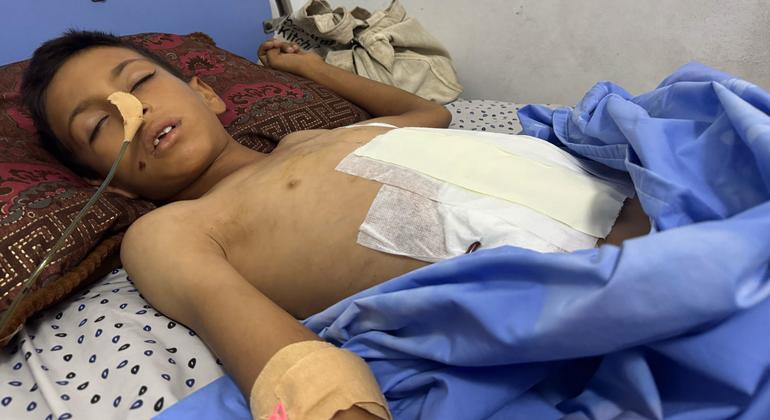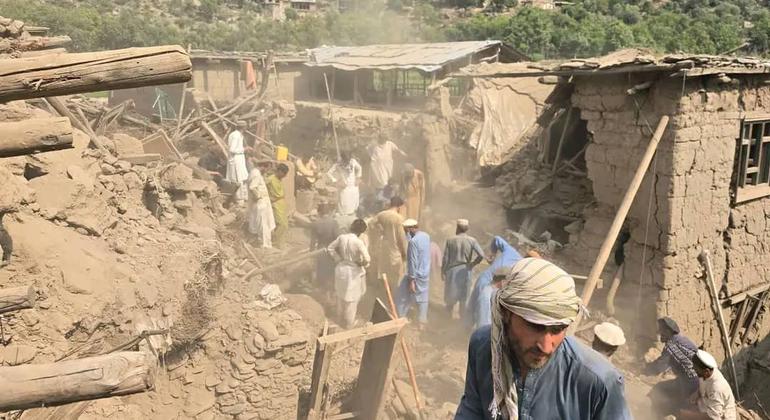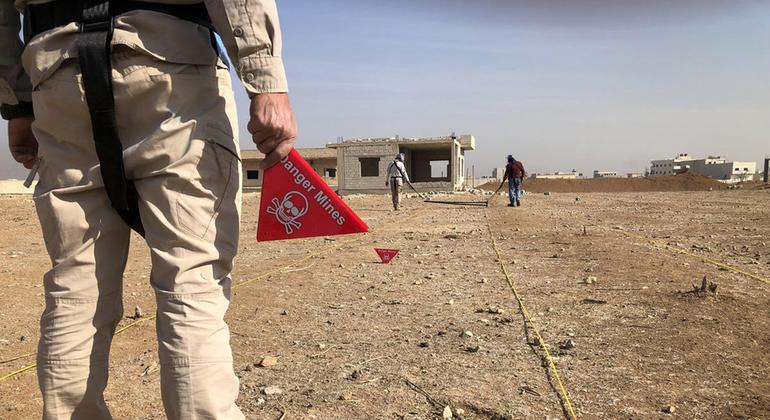Head of the World Health Organization (WHO) Dr Tedros Adhanom Ghebreyesus announced that first responders from the UN agency were already “on the ground” to support care for the injured.
The UN World Food Programme (WFP) also highlighted its support for affected communities and the emergency response as needs appraisals began.
Reports indicate that the earthquake struck near the city of Mazar-i-Sharif at around 1am local time, causing buildings to collapse on those sleeping inside.
Footage posted on social media from the city’s Shrine of Hazrat Ali – also known as the Blue Mosque – showed people stepping around rubble on the ground of the site revered by Shiah Muslims.
Although people have been reported killed in the worst-hit mountainous province of Samangan, initial assessments carried out from the air indicated fewer signs of damage than at first feared.
The UN flyover, conducted with the help of the Swiss authorities, also showed no signs of mass displacement that might have been expected had the earthquake been more destructive.
“We went over the main populated areas where the most settlements are in the earthquake affected area.
“Thankfully, we saw very little widespread devastation…compared to the devastating scenes we saw in Kunar just a few weeks ago,” said Richard Trenchard, the UN’s acting Humanitarian Coordinator in Afghanistan.
Still reeling from Kunar quake
The new crisis follows a magnitude 6.0 earthquake on 31 August that swept away thousands of houses and vital infrastructure in eastern Afghanistan’s Kunar province. The disaster uprooted hundreds of thousands of people and left half a million requiring urgent medical assistance.
The Shrine of Hazrat Ali in Mazar-i-Sharif reportedly sustained damage.
“What began as an acute emergency has now evolved into a displacement crisis, where families endure extended stays in temporary settlements amid escalating health risks,” WHO said.
In addition to a lack of access to safe drinking water for displaced families, the UN agency warned of widespread open defecation and poor access to health services for women in particular, owing to “the absence of female staff and the lack of privacy”.
Maternal and newborn health needs remain critical for those impacted by the August quake amid deep funding cuts for aid work, WHO noted, in addition to immunization, noncommunicable disease case management and mental health and psychosocial support.
On the ground in Afghanistan, UN agencies and partners say that collaboration and local leadership will be crucial to boost the recovery response.
Efforts are underway to pre-position supplies, mobilize surveillance teams to prevent disease outbreaks and prepare damaged hospitals to resume operations.






